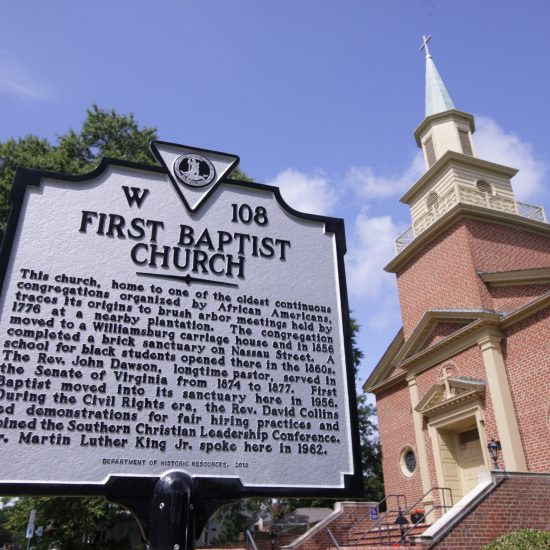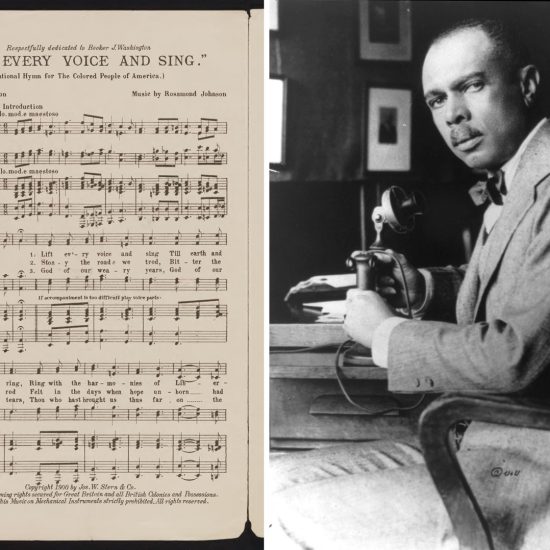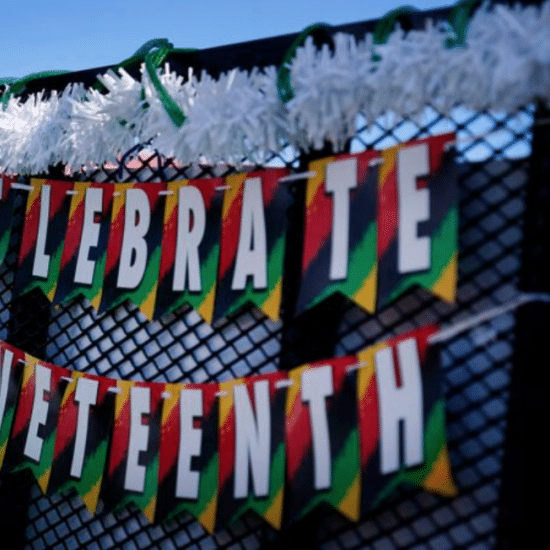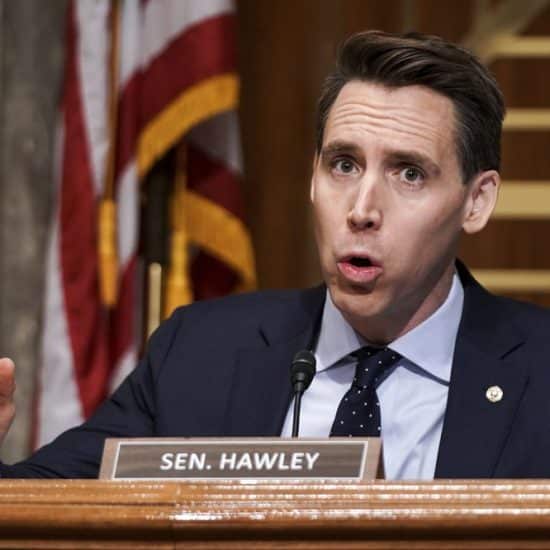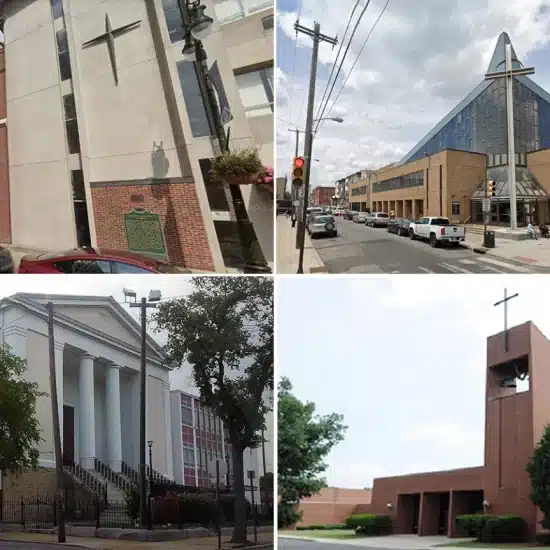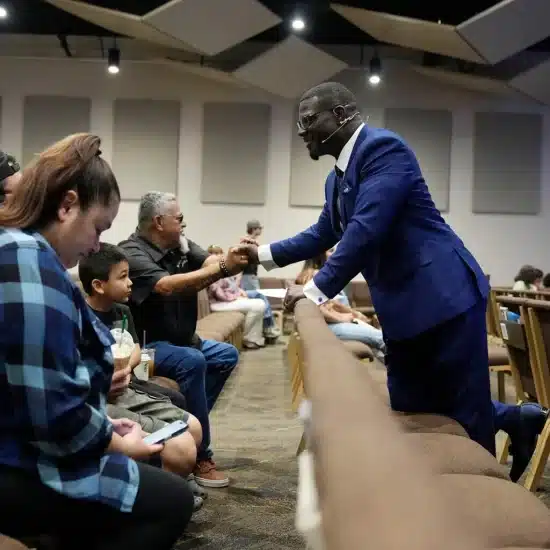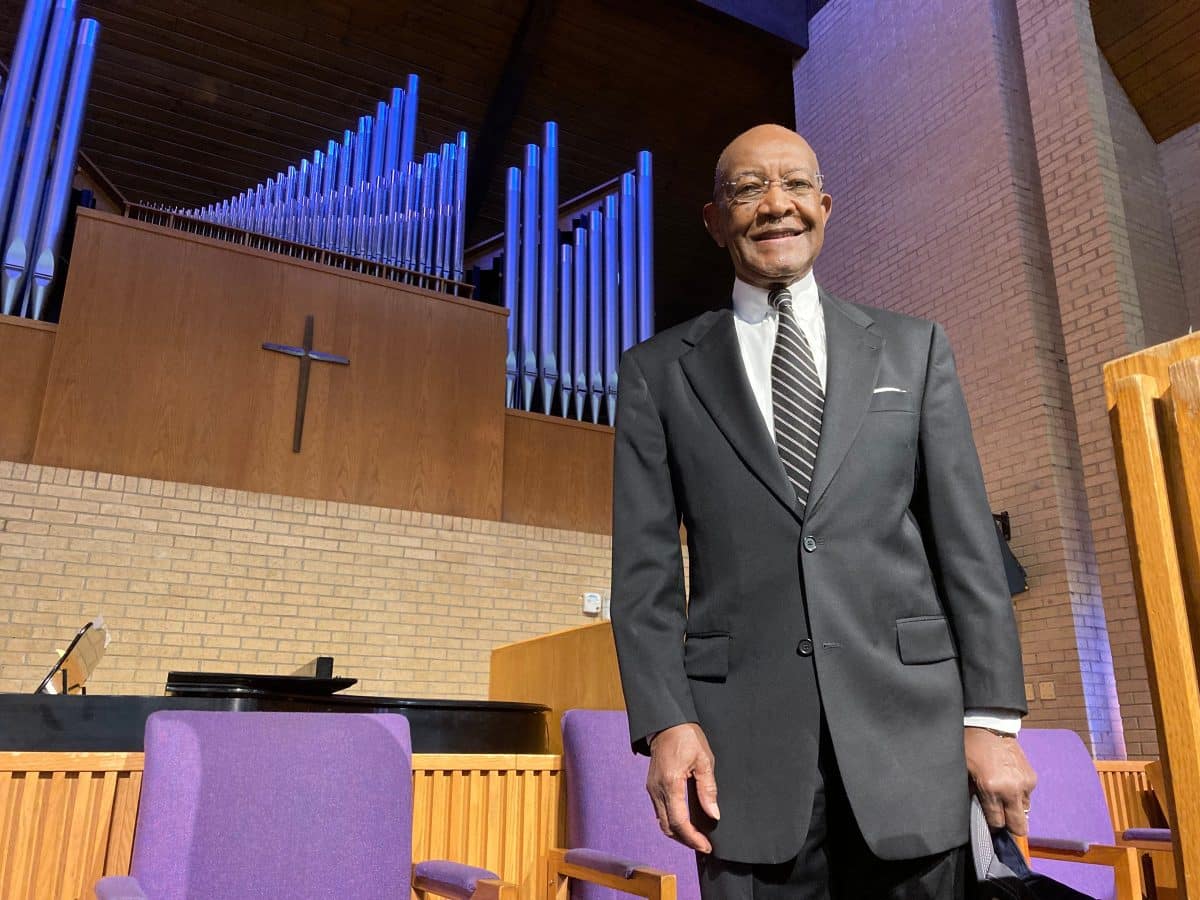
(RNS) — The Rev. James A. Forbes Jr. was already an adult when he first began to understand the significance of Juneteenth.
It was his wife, Bettye, whom he met in the early ’60s when they were both students at Howard University, who helped him gain an appreciation for the commemoration. She had grown up in San Antonio, Texas, where each year on June 19, Blacks across the city celebrated their freedom with pageants, parades, performances and other public events in city parks.
Forbes had grown up in Raleigh, North Carolina, in the 1930s and 1940s, when Juneteenth was barely known, much less celebrated.
The pastor emeritus of the towering Riverside Church in New York City, Forbes has returned to Raleigh and now sees it as his mission to spread the good news about the annual celebration of freedom, which President Biden signed into law Thursday (June 17) as a federal holiday.
This year he wrote a trenchant poem on the challenges that remain 156 years after Maj. Gen. Gordon Granger arrived in Galveston, Texas, to deliver the message the Civil War was over and the enslaved were free. Forbes’s spoken word is not simply a paean to freedom. It’s a call to all Americans to face the reality of the nation’s history and the unfinished work of Juneteenth.
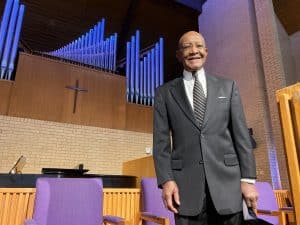
The Rev. James Forbes at St. Joseph AME Church in Durham, North Carolina, on June 17, 2021. (Yonat Shimron/Religion News Service)
“I felt, as a preacher, that this day, in a curious way, has a power not even present in the Fourth of July,” Forbes said. “The Fourth of July set people free from the British Crown. But Juneteenth set people free from the divisions, the dehumanization, the cruelty and bondage of slavery itself.”
Recently, he shared his spoken word with another North Carolina religious leader, the Rev. William J. Barber II. Barber liked it so much he had Forbes deliver it on camera. It’s now posted to his Repairers of the Breach YouTube channel. In it, Forbes stands in the sanctuary of Pullen Memorial Baptist Church, a civil rights icon in Raleigh, and speaks.
“The newly freed slaves were ecstatic on that great day. They thanked God for liberty despite the delay. God said ‘Though you are free from chains of slavery you’re still captives of murderous bigotry’”
Forbes began to publicly mark Juneteenth in 2015 with an annual concert of the Ebony Ecumenical Ensemble, which his wife founded. The initial celebrations were at Riverside Church, but in 2019, the event moved to Carnegie Hall, which will continue to observe it online this year with a program of music, dance and commentary from such figures as Harvard professor Annette Gordon-Reed and noted civil rights lawyer Bryan Stevenson.
The past two years, however, have laid bare any hope the freedoms won on June 19, 1865, were the end of the story. The killing of George Floyd in Minneapolis last year, and the nationwide protests that followed, seared Forbes’s soul.
“I found myself thinking that the George Floyd protests were God speaking to the nation,” Forbes said. “When protesters started to say, ‘Black Lives Matter, No justice, no peace,’ I experienced that as God speaking through them about what we must do if we are to be a society that is not on the path to destruction but a people headed toward the beloved community.”
Then came the assault on the Capitol on Jan. 6, in which White people carried Confederate flags, followed by South Carolina Sen. Tim Scott’s statement that “America is not a racist country,” in response to President Biden’s address to Congress.
A line in the poem directly challenges Scott — “If it matters to you to have truth on your side, racism in this country cannot be denied.”
Barber said that what struck him about Forbes’s poem was its insistence Americans have to do the work to complete the promise of freedom.
“His words remind us that we can remember Juneteenth as a nation, but we cannot retreat from fighting the unsettled injustices and lies of white supremacy that still enslave too much of the psyche and policies of our nation and world,” Barber said.
Yet the inspiration for the poem, Forbes said, was not the rise of White Supremacy, the continued police brutality against Black people, or the ongoing racial disparities in so many sectors of American life. It was a few slave narratives he read as part of his goddaughter’s collection of essays marking the 400th anniversary of the arrival of Africans on this continent.
Colita Nichols Fairfax’s edited 2021 book, The African Experience in Colonial Virginia: Essays on the 1619 Arrival and the Legacy of Slavery, contained parts of slave narratives that spoke to the exhilaration enslaved people experienced when they won their freedom.
Forbes, who also contributed an essay to the book, said he was inspired by the resilience, faith, and effervescence of Black people through the centuries. That, he said, may be their singular contribution to American society.
“Even though Blacks became the object of that vile institution of slavery, Black presence may have a humanizing dynamic that may help save the soul of this nation,” he said.
The poem, which he calls a meditation, is his contribution to what he describes in the last stanza as the hope for what the nation might yet become: “When all of God’s children can finally breathe free, we can celebrate being a true democracy. Imagine the joy and delight we will share, when we recover the oneness already there.”

